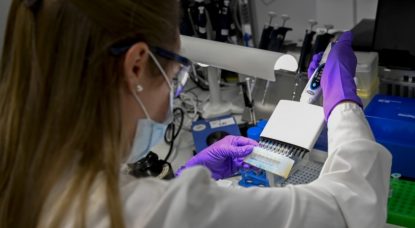Researchers from the Catholic University of Leuven and the Leuven University Hospital have identified an “immunological fingerprint” of people infected with coronavirus.
This fingerprint shows that the presence of a certain protein increases the risk of dying from Covid-19, according to the research, which was published on Monday in the scientific journal Nature Aging.
In the summer of 2021, the researchers took nasal mucus samples from more than 600 people who worked or resided in three nursing homes in Nivelles, Liege and Zaventem. A major outbreak of Covid had occurred in these homes, with more than one-fifth of the residents who tested positive losing their lives.
Almost all had been vaccinated twice.
The researchers detected three different dominant variants among those infected: Delta in one centre, Gamma in a second and Mu in the third. The Mu variant, less known to the general public, was considered less worrisome.
“It was surprising that the Mu variant, considered ‘not worrisome,’ also led to so many deaths,” explains immunologist Johan Van Weyenbergh (Rega Institute – KU Leuven). “We wanted to understand why and see what elements were common to all three outbreaks.”
Analyses of the nasal swabs showed that the coronavirus was more likely to cause death in people who had a high amount of a certain cytokine protein in their immune system.
“The protein causes an inflammatory response in the immune system of a person infected with the virus,” Johan Van Weyenbergh explained. “The more cytokine protein there was in the nasal swabs, the faster people died.”

